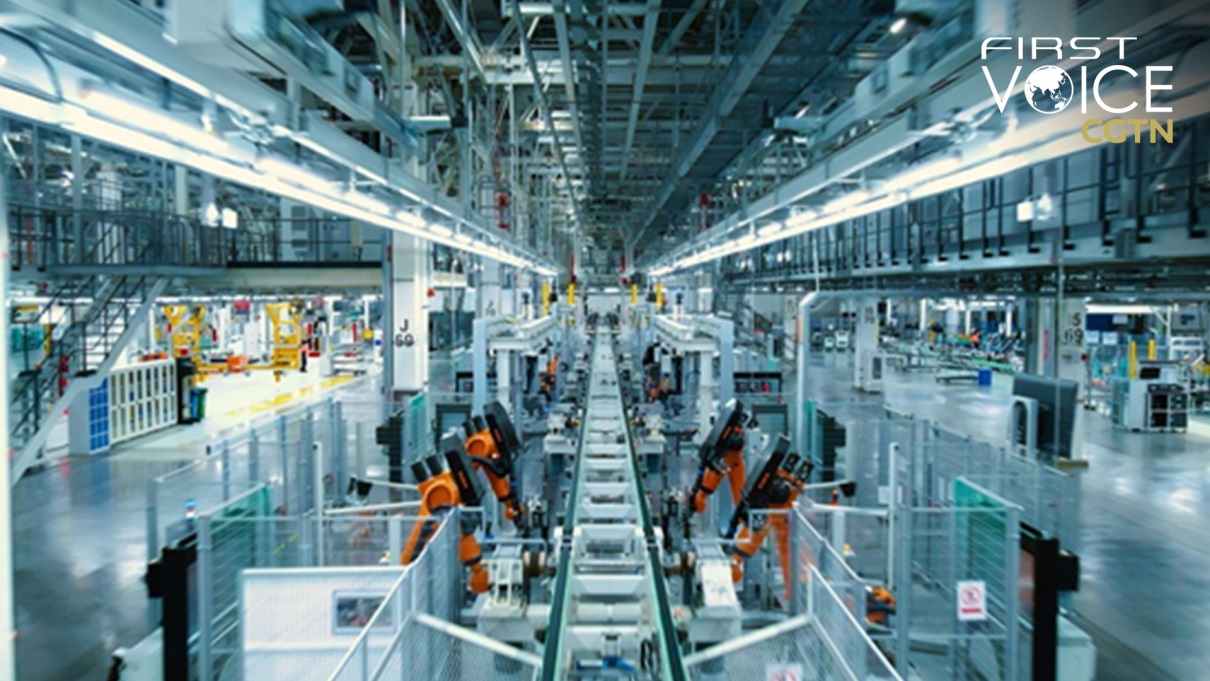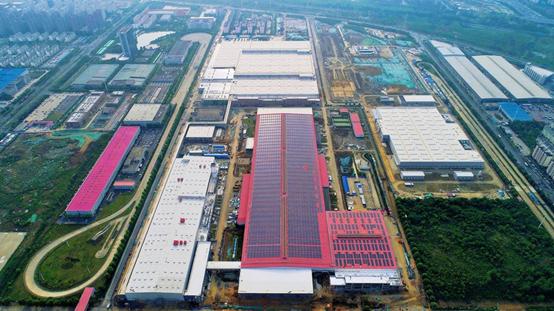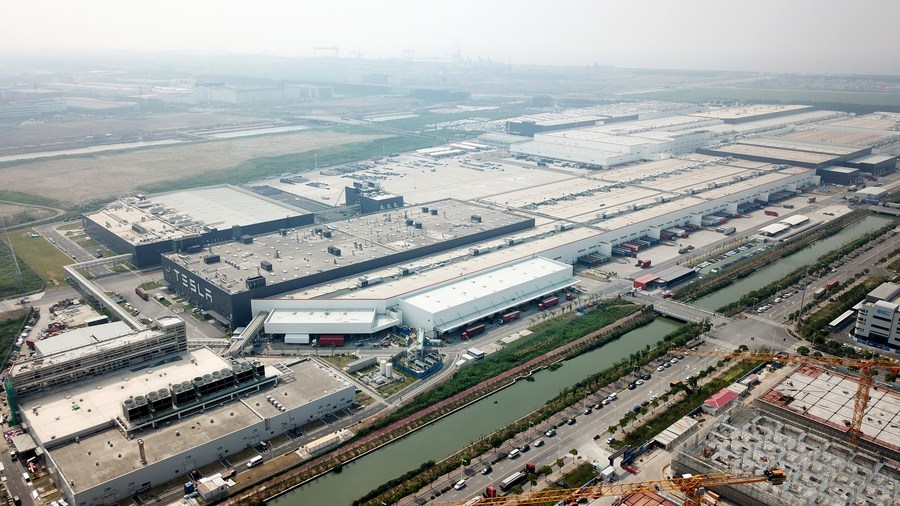
Editor's note: CGTN's First Voice provides instant commentary on breaking stories. The column clarifies emerging issues and better defines the news agenda, offering a Chinese perspective on the latest global events.
Recently, some Western politicians and media outlets have been hyping up stories that "foreign investors are withdrawing funds from Chinese A-shares, accelerating the pace of ‘decoupling’ with China." In fact, this is not the first time we have heard this argument. "Foreign capital leaving China" has been rehashed many times in recent years. Why is the West so obsessed with this narrative? What is the current state of China's economy?
In an exclusive interview with CGTN, Liu Yangsheng, founder of Impact Asia Innovation Capital and senior fellow at the Taihe Institute, shared more of his thoughts in this regard. The following is an excerpt from our interview.
CGTN: Some Western media have recently used the routine business adjustment of Global asset managers such as BlackRock and Norway's sovereign wealth fund to speculate on the "withdrawal of foreign capital from China's A-shares." What do you think about it?
Liu Yangsheng: I don't think these murmurs need to be heeded at all. This is nothing new. From the book "The Coming Collapse of China," published by American lawyer and author Gordon G. Chang more than 20 years ago, to the present media narrative, Western hype has done this repeatedly and it's proven to be false. I think there is a political force driving these claims.
Also, different investment banks have different investment strategies. Some investment banks are shorting China's stock market in order to buy it for themselves. As for "divestment from China," the United States may have divested, but Europe has not. On the contrary, European foreign direct investment (FDI) into China has increased substantially. For example, Germany's FDI in China in the first half of this year almost reached a record level.
In addition, I have seen Middle Eastern countries scaling up their investments in China. These include the United Arab Emirates, Kuwait, Saudi Arabia and Qatar. There are many Saudi ministers that have come to China in the past six months, with eight ministers and a deputy minister. This is something that would have been unimaginable a few years ago.
The Middle East is the center of wealth, with affluent oil and gas reserves, and there's no way for Middle Easterners to increase their investments locally. A place like the UAE, for example, is not in a position to form large-scale industries. With a population of just over 600,000, Qatar is also unable to advance the process of industrialization with such a population size. The rich in the Middle East tend to invest abroad to get returns. Investors continue to see risks in the U.S. market due to ongoing inflation and changing investment policies based on geopolitical considerations. While with its vast population and increasing consumer spending, China offers a compelling opportunity for investors. I have talked to four of the Saudi ministers who have come here. They are all very positive about investing in China.

The Volkswagen Anhui MEB (Modular Electric Drive Matrix) plant under construction in the Hefei area of the pilot free trade zone (FTZ) in east China's Anhui Province, July 4, 2022. /Xinhua
The Volkswagen Anhui MEB (Modular Electric Drive Matrix) plant under construction in the Hefei area of the pilot free trade zone (FTZ) in east China's Anhui Province, July 4, 2022. /Xinhua
CGTN: The Financial Times published an article last week saying that "Chinese equity markets are on track for one of their biggest net monthly outflows this year." "China's CSI 300 index of top stocks has remained flat this week, despite better than expected figures for retail sales and industrial production." How do you assess the current Chinese economy?
Liu Yangsheng: That kind of media reporting is biased. Now China's situation has to be talked about together with the situation of the whole world. Europe, for example, has now clearly entered a recession. The U.S.'s economy is also getting more and more nervous, and the U.S. Federal Reserve may well raise interest rates again, which leads to a variety of unfavorable statements about the U.S. stock market and the U.S. economy. I think China's economy has definitely been affected by the global recession, which is inevitable because China is a major trading partner of more than 100 countries.
The Chinese economy does face some challenges right now. But overall, China has a solid foundation in production and manufacturing, with fast-growing industries such as electric vehicles and solar photovoltaic.

The Tesla Gigafactory in the Lingang new area of the China (Shanghai) Pilot Free Trade Zone in east China's Shanghai, August 20, 2022. /Xinhua
The Tesla Gigafactory in the Lingang new area of the China (Shanghai) Pilot Free Trade Zone in east China's Shanghai, August 20, 2022. /Xinhua
CGTN: If China's economy wants to maintain high-quality and sustainable development, how do you think China's economic structure can be adjusted or optimized in the future??
Liu Yangsheng: I have to mention the Belt and Road Initiative (BRI), which connects its neighboring countries through trade, infrastructure, and cultural exchange. With integrated and interconnected development under the BRI, China and ASEAN countries have become a key driver of regional economic integration. And now Central Asia and the Middle East, and even some countries in North Africa, have become part of China's supply chain.
Each country can play to its strengths and fully utilize its developmental factors such as its natural resources, capital and labor. The BRI has become an important factor in the global economy.
Now the Belt and Road Initiative has evolved into an updated version. It can be said that the BRI 1.0 version is focused on infrastructure construction. As the Chinese saying goes, "if you want to get rich, build roads first." As BRI 2.0 moves forward, it will further promote trade and facilitate more people-to-people connections.
(If you want to contribute and have specific expertise, please contact us at opinions@cgtn.com. Follow @thouse_opinions on Twitter to discover the latest commentaries in the CGTN Opinion Section.)